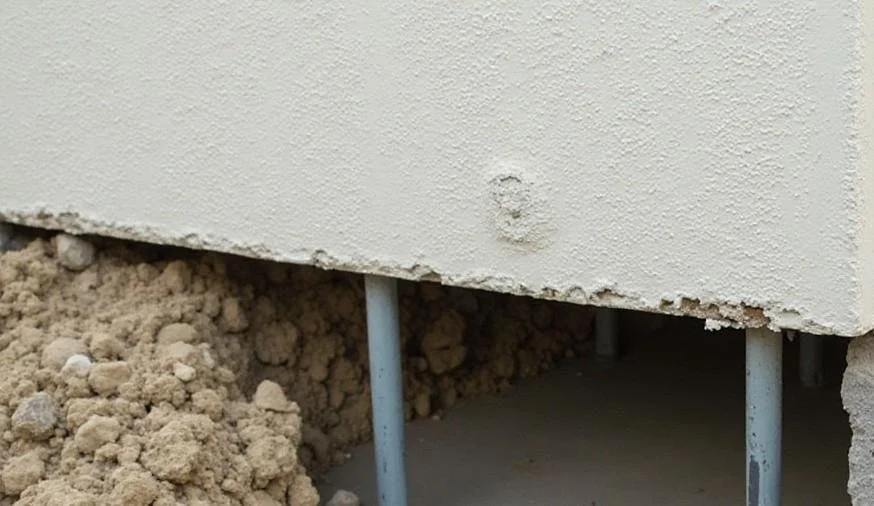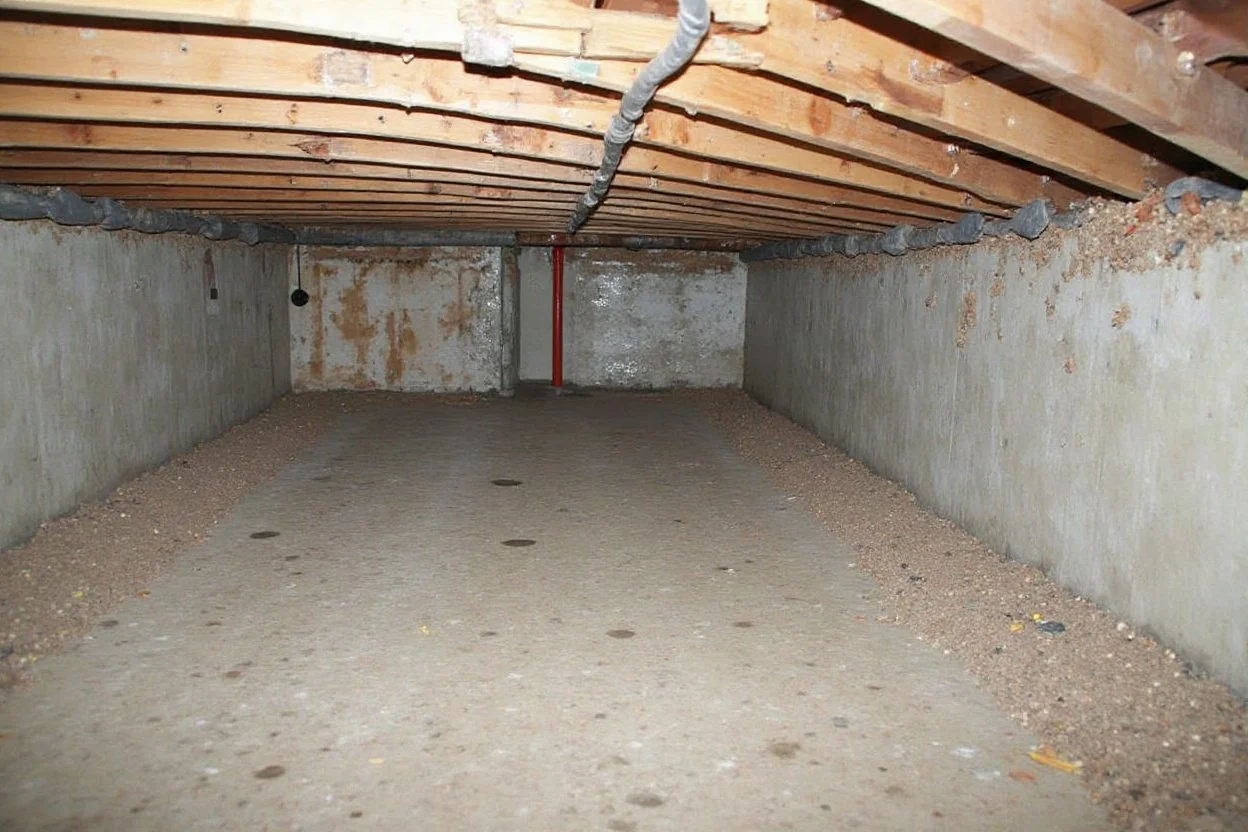24-Hour Foundation Contractor Near You
Foundation Repair Columbus NC | Available 24/7 for Emergencies
Functional Foundations offers foundation repair services in Columbus, North Carolina.
What sets our Columbus foundation repair contractor apart?
24-hour customized foundation solutions for every home
Durable materials for lasting foundation solutions
Transparent pricing without surprises
Commitment to customer satisfaction
Our contractor offers foundation solutions without the burden of excessive costs.
We stand behind our work with a comprehensive service warranty that covers both materials and labor.
Call (252) 648-6476 for foundation repair near you.
Our Affordable Foundation Repair Services
Foundation settlement repairs
Crawlspace foundation repairs
Bowed wall repair
Concrete crack repairs
We lift and stabilize a settling foundation by transferring the load to competent soil or bedrock with structural supports. We evaluate cracks, floor slope, and review load paths from the roof to the footing. We follow the North Carolina Residential Code and local Polk County inspections.
Settlement happens when footings bear on weak or disturbed soil. NC code requires footings to sit on undisturbed natural soils or engineered fill to avoid future movement.
Swelling and shrinking clays in parts of the Carolinas can add stress and cause differential settling.
Typical repair solutions include steel or concrete piers that bypass soft layers and reach stronger strata. We keep footings sized for soil capacity and placed below frost depth.
Foundation Settlement Repairs
Crawl Space Repair Near You
We repair crawl space supports by replacing failed piers, shoring beams, and sistering joists where needed. Crawl space repair strengthens beams, girders, and floor framing to restore the level.
We add steel posts or adjustable support jacks under weak spans. We replace failing piers and shore rim areas. We sister joists and repair the subfloor where needed.
Damp crawl spaces can damage wood and supports, which is why structural repairs often pair with better drainage. We focus on the structural side only.
Code and federal guides call for proper footings and permanent supports under beams to prevent settling. We install supports that bear on adequate footings, not temporary blocks.
If your crawl spaces have sagging floors, we restore support with new posts and beams, then verify clearances for inspection. Polk County requires permits and scheduled inspections for structural work. Call (252) 648-6476 now!
Bowed Wall Repair Service
Concrete Crack Repair Specialist
Concrete crack repairs seal active leaks, restore strength where needed, and limit future spread.
We use epoxy injection for structural cracks and polyurethane injection for flexible sealing. Epoxy bonds the two sides and restores strength. Polyurethane seals movement joints or hairlines that move with the seasons. We prep, port, inject, and finish each area.
We review slab cracks and edges for load and movement. Slab‑on‑grade cracks near corners may show curl or shrinkage. Settlement near porches can point to voids. We add support where needed and monitor low‑risk lines.
Call (252) 648-6476.
Concrete Foundation Repair in Columbus
We offer concrete foundation repair that stops movement and fixes the underlying issue.
Picture this. You notice a thin crack on the slab by the garage. The door near it starts to rub the frame after a week of rain. That is your first sign that the foundation moved.
We start with a simple check of the slab and footings. We measure floor slope, mark cracks, and note where doors stick. These quick checks tell us if the problem is settlement, a bowed wall, or surface shrinkage.
If the home is settling, we install steel piers at key points. Piers carry the load down to firm soil which takes the weight off the soft layer near the surface. The goal is steady support, not guesswork.
If the slab has a structural crack, we use epoxy injection. Epoxy bonds the sides and restores strength. If the crack moves with seasons or lets in moisture, we use polyurethane instead. That seal flexes as the slab shifts.
If a basement wall leans, we add interior braces or wall anchors. Braces work inside when space is tight. Anchors pull the wall back against steady soil. Carbon-fiber straps help when the movement is light and new.
Columbus sits near clay that shrinks in dry spells and swells after storms. That push and pull acts on footings, slabs, and walls. We pick the fix with this local pattern in mind.
Affordable foundation specialists near you. Call (252) 648-6476.
Why Foundation Problems Happen in Columbus
Foundation problems happen in Columbus when clay soil moves, water loads the soil, and drainage leaves moisture against the house.
What’s going on (plain cause & effect):
Clay soil swells, then shrinks. After rain, the local clay swells and lifts parts of the foundation. In dry spells, the clay shrinks and drops them. That up-and-down motion makes cracks, uneven floors, and sticking doors.
Water adds side pressure on walls. Wet soil gets heavy. When it stays soaked beside a basement or crawlspace wall, it pushes inward (hydrostatic pressure). Results: bowed walls, step-cracks, and leaks.
Poor grading and gutters keep soil wet. If the yard slopes toward the house or downspouts dump water at the footing, water pools. Saturated soil softens, and the footing settles. Expect tilting porches, corner cracks, and gap lines.
Plumbing or AC drips soak one area. A slow leak under the house creates a wet pocket. Posts and beams rot or sink under that spot, so floors sag and bounce.
Trees and big shrubs change moisture. In dry weather, roots pull water from the clay near the footing. The soil shrinks there first, causing differential settlement (one side drops faster than the other).
Fill soil or light compaction at build time. If backfill wasn’t compacted well, the ground compresses over time. You see early-life settlement, stair-step cracks, and sloping slabs.
Hillside creep and retaining walls. On slopes, soil slowly moves downhill, pushing on walls and footings. Retaining walls lean without drainage and tie-backs.
Crawl space humidity. Warm, wet air under the house rots wood over time. Joists and beams weaken, so floors dip even if the concrete footing looks fine.
Call Us for Foundation Repair Solution
We stabilize bowed basement or crawl space walls that lean from soil pressure. Bowed wall repairs stop inward movement and stabilize block or poured walls.
We measure deflection along the length and height. Horizontal cracks and step‑cracks show movement patterns. We document soil pressure points near the wall. We use structural anchors and reinforcement that tie walls back to the floor system or add bracing.
Widening cracks and movement signal loss of capacity and call for prompt structural action. We use rated anchors and connectors to resist that push.
Manufacturer systems (e.g., Simpson Strong‑Tie) connect foundation walls to the floor diaphragm to resist out‑of‑plane forces from backfill. This approach adds reliable support without the need for excavation.
When walls need extra strength, we use approved anchors or bracing made for concrete or block walls. These parts are tested for use with concrete and masonry.
Call our team at (252) 648-6476 for foundation solutions that stop movement and fix the cause. You’ll talk to a foundation contractor near you who sets a time to visit and keeps the process simple.
You make the call and tell us what you see. Maybe a corner is settling, a crack is spreading, or a door is rubbing. We book a visit that fits your schedule.
We come out and look at the walls and the crawl space. We explain what is happening and all available foundation solutions. We share a clear plan and price before any work starts.
If the home is settling, we install piers at key spots to reach firm soil. If a wall is leaning, we add interior braces or anchors to hold it. If a crack needs repair, we inject it and seal it so it stays tight. If the crawl space is weak, we add posts and fix the framing.
Call (252) 648-6476 to talk to our experts.
Open 24 hours
We Proudly Serve Columbus NC
Columbus is a town and the county seat of Polk County, North Carolina, United States. The population was 1,060 at the 2020 census. The town is concentrated along North Carolina Highway 108, southeast of Asheville, and a few miles north of the North Carolina-South Carolina border. U.S. Route 74 passes through the northern part of town, and Interstate 26 passes through the eastern section.
According to the United States Census Bureau, the town has a total area of 1.8 square miles (4.7 km2), all land.
As of the census of 2000, there were 992 people, 414 households, and 238 families residing in the town. The population density was 559.1 inhabitants per square mile (215.9/km2). There were 442 housing units at an average density of 249.1 per square mile (96.2/km2).
There were 414 households, out of which 19.8% had children under the age of 18 living with them, 44.7% were married couples living together, 10.4% had a female householder with no husband present, and 42.5% were non-families. 38.6% of all households were made up of individuals, and 26.8% had someone living alone who was 65 years of age or older. The average household size was 2.08, and the average family size was 2.75.
Population: 1,041 (2024)
Elevation: 1,148′
FAQs
-
Yes, Columbus, NC is a good place to live for those who enjoy a small-town lifestyle with a close-knit community, scenic mountain views, and a slower pace of life.
-
Columbus, NC is known for its historic courthouse, charming downtown, and proximity to the Blue Ridge Mountains, making it popular for outdoor activities and local heritage.
-
Crawl space repair includes adding solid support and replacing rotten wood. Our work may consist of sistering joists, adding beams, and resetting piers. We keep the area clean and safe during work.
-
Yes, we stabilize and lift slabs that have settled. We assess the cause, then choose the best lift or stabilization method. This reduces trip hazards and helps doors and windows work properly.
-
The least invasive foundation options are interior braces, carbon-fiber straps, selective piers, and crack injection.
Interior braces: Work happens inside the basement. No digging outside. Little demo.
Carbon-fiber straps: Straps glue to the wall. No excavation. They sit flat and paint over.
Selective piers: Piers go only where settling occurs. Small holes. Limited digging.
Crack injection: Small ports go into the crack. Material is injected. No large openings.



